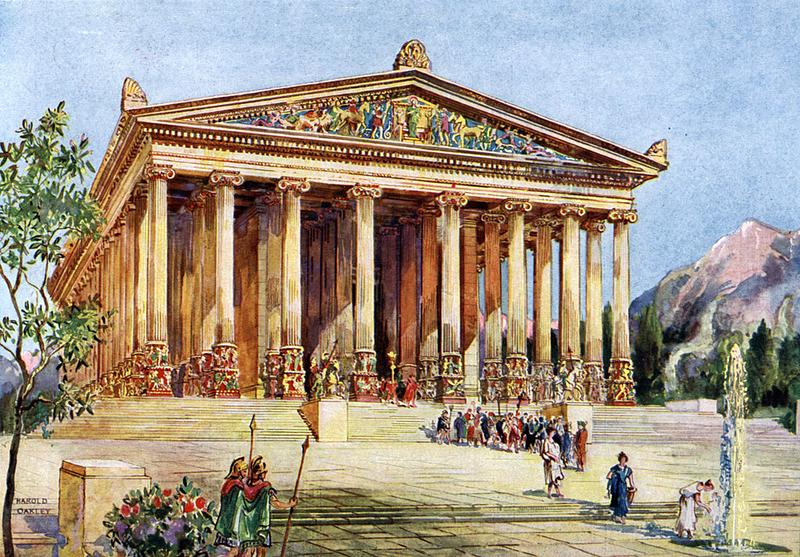This Day In History: Herostratus And The Destruction Of The Temple Of Artemis, One Of The Seven Wonders
By | July 10, 2021

In 356 B.C.E., the ancient world's most notorious arsonist, Herostratus, set fire to the Temple of Artemis, an impressive Greek temple located in modern-day Turkey. Today, only a ruined foundation remains of this once lavish structure, and Herostratus got the legal Voldemort treatment from the Ancient Greeks.
The Temple Of Artemis
The Temple of Artemis, dedicated to the Greek goddess of the hunt, stood in the ancient city of Ephesus near the present town of Selcuk, Turkey. It was first constructed during the Bronze Age, most likely in the latter half of the eighth century B.C.E., and initially, it wasn't so impressive. It was a simple center of worship, but after a flood buried the temple under several feet of sand and debris in the seventh century B.C.E., it got a massive upgrade. By the time it was rebuilt as a marble structure held in place by wooden beams more than 125 years later, it was the largest Greek temple ever built, more than 377 feet long and 150 feet wide. More than one-quarter of its 127 columns were carved with reliefs by the famous artist Scopas. Kings, peasants, and merchants alike trekked to the Temple of Artemis to pay homage to the goddess.

Then Came Herostratus
On July 21, 356 B.C.E., a peasant (or possibly a slave) named Herostratus entered the Temple of Artemis and set fire to its wooden beams. As the blaze raged, the marble columns and façade fell, leaving the once mighty building in ruins. Upon capture and torture, Herostratus admitted setting the fire, believing that such a horrendous act would cement his name in history's memory. He was sentenced to death for the arson, but to ensure no one else would try to follow in his footsteps, Greek authorities implemented damnatio memoriae, or "condemnation of memory," a law that prohibited speaking or writing the name of a condemned person. It was meant to erase Herostratus and any other criminal fame-seekers from history, but we're still talking about him, so it can't be called a rousing success.

What Happened To The Temple?
Meanwhile, reconstruction of the temple lagged for the next few decades. Alexander the Great—coincidentally born the day the temple burned down—offered to finance its reconstruction, but the people of Ephesus insisted on tackling the project themselves and eventually managed to build an even grander structure that was named one of the Seven Wonders of the Ancient World. It stood for a little over 500 years before it was once again destroyed by invading Goths and the people got tired of rebuilding it. Today, it stands as little more than a heap of ancient rocks, but people still flock to what was once the site of such unparalleled beauty.

